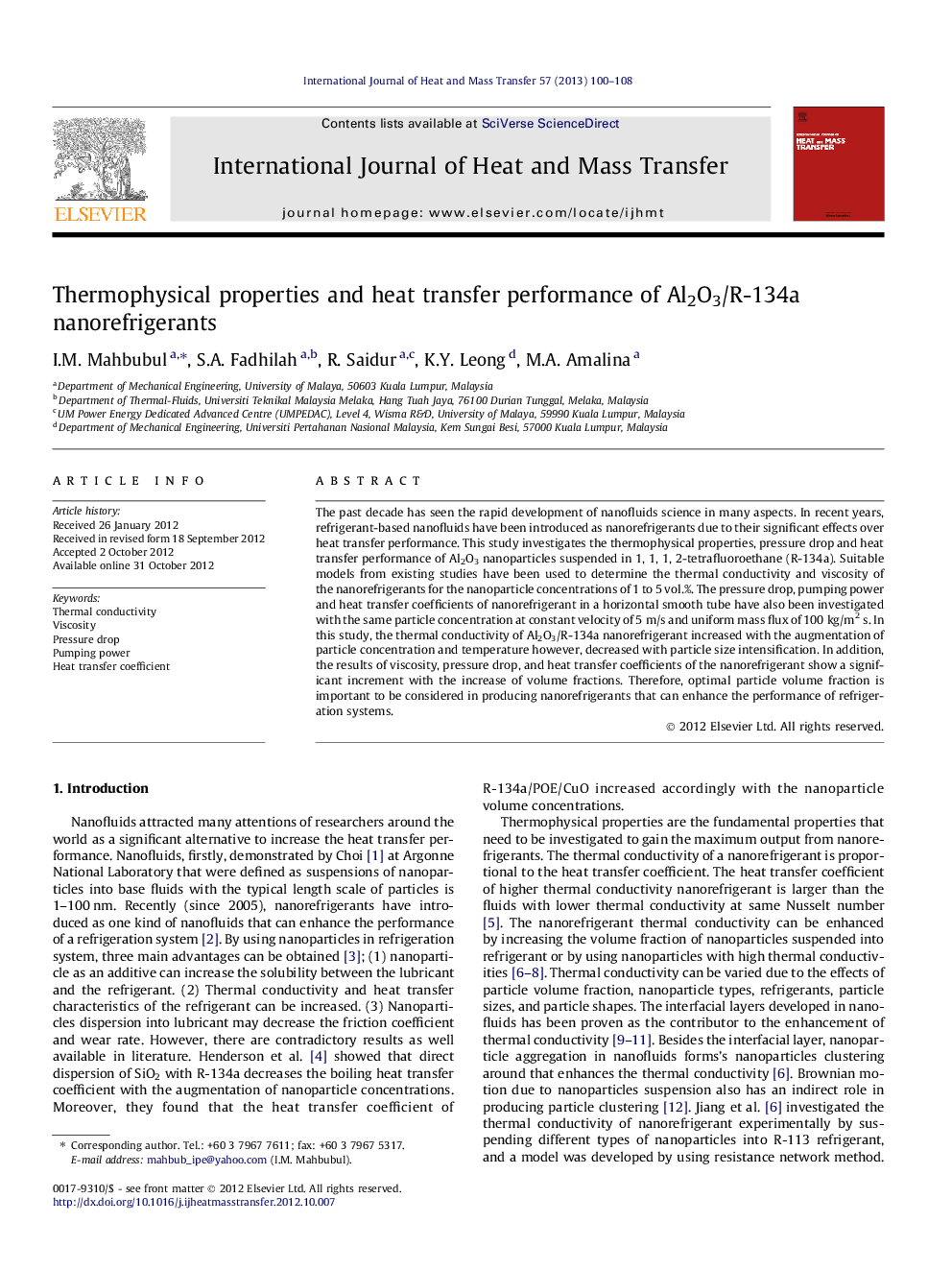| Article ID | Journal | Published Year | Pages | File Type |
|---|---|---|---|---|
| 658497 | International Journal of Heat and Mass Transfer | 2013 | 9 Pages |
Abstract
The past decade has seen the rapid development of nanofluids science in many aspects. In recent years, refrigerant-based nanofluids have been introduced as nanorefrigerants due to their significant effects over heat transfer performance. This study investigates the thermophysical properties, pressure drop and heat transfer performance of Al2O3 nanoparticles suspended in 1, 1, 1, 2-tetrafluoroethane (R-134a). Suitable models from existing studies have been used to determine the thermal conductivity and viscosity of the nanorefrigerants for the nanoparticle concentrations of 1 to 5 vol.%. The pressure drop, pumping power and heat transfer coefficients of nanorefrigerant in a horizontal smooth tube have also been investigated with the same particle concentration at constant velocity of 5Â m/s and uniform mass flux of 100Â kg/m2Â s. In this study, the thermal conductivity of Al2O3/R-134a nanorefrigerant increased with the augmentation of particle concentration and temperature however, decreased with particle size intensification. In addition, the results of viscosity, pressure drop, and heat transfer coefficients of the nanorefrigerant show a significant increment with the increase of volume fractions. Therefore, optimal particle volume fraction is important to be considered in producing nanorefrigerants that can enhance the performance of refrigeration systems.
Related Topics
Physical Sciences and Engineering
Chemical Engineering
Fluid Flow and Transfer Processes
Authors
I.M. Mahbubul, S.A. Fadhilah, R. Saidur, K.Y. Leong, M.A. Amalina,
